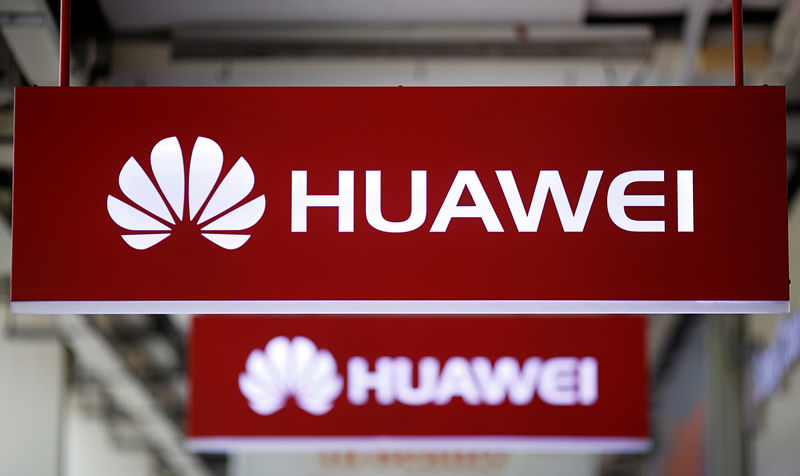By Samuel Shen and Josh Horwitz
SHANGHAI (Reuters) - Washington's blacklisting of technology giant Huawei has taken a toll on U.S. semiconductor shares, but China-listed firms have rallied as investors bet they can gain from Beijing's stepped-up efforts to build a homegrown supply chain.
Share price gains of little-known firms such as Shenzhen Fastprint Circuit Tech and Jiangsu Changjiang Electronics Technology could be fleeting, analysts say, but Huawei's troubles could accelerate a long-term campaign in China to replace imported technologies.
Since the White House added Huawei Technologies Co Ltd to a trade blacklist last week, several global companies have suspended business with the world's largest telecoms equipment maker. Citic Securities called the U.S. ban on Huawei "a warning bell" for China's chip industry, highlighting the importance of establishing independent supplies in the chip industry chain.
Rapidly escalating Sino-U.S. trade tensions have also raised the stakes for Shanghai's Nasdaq-style technology board, which will be launched as soon as next month. The board is largely seen as part of President Xi Jinping's efforts to counter U.S. curbs on Chinese technology advancements.
U.S. President Donald Trump put Huawei on the U.S. "Entity List" last Wednesday, effectively banning U.S. companies from doing business with the Chinese firm, triggering sharp falls in U.S. suppliers including Qualcomm (NASDAQ:QCOM) Inc and Broadcom (NASDAQ:AVGO) Inc.
But China's semiconductor sector has gained nearly 5% so far this week, bolstered by a burst of patriotic buying. The sector has far outperformed the broad index, which is down 1.7%.
Despite the rally, analysts say China still lags behind in the core technologies required for a self-reliant domestic semiconductor industry, and the market reaction reflects short-term investor optimism toward a complicated, long-term problem.
"Logically, it makes sense to bet on domestic substitution, but we don't see any change in fundamentals yet," said Reagan Li, fund manager at Shanghai V-Invest Co Ltd.
The U.S. ban on Huawei has roiled the global supply chain, "potentially creating opportunities for China to re-establish industry order, but what matters is whether the companies have the ability to capitalize on it".
But such investor optimism is badly needed for China's semiconductor industry, under threat from the U.S.-China trade and which needs support from capital markets for funding.
"Companies like us have been relying on U.S. equipment and technologies," Song Weicong, chairman of Shanghai Betone Semiconductor, told a financial conference last week.
"If Trump orders bans, we will be greatly affected. The current Sino-U.S. trade war indeed impacts China's hi-tech development."
Many of China-listed companies in the sector make relatively simple components.
According to a report from Everbright Securities, Chaozhou Three Circle (Group) Co Ltd and Will Semiconductor Co Ltd Shanghai, two companies whose share prices jumped, produce technology that could only "partially replace" that of U.S. suppliers.
The report adds that U.S. companies that manufacture critical products and software would be "basically hard to replace with Chinese-made" components.
Many Chinese firms making these critical components are unlisted. Yangtze Memory Technologies Co Ltd, Fujian Jinhua Integrated Circuit Co Ltd, and Innotron Memory, for example, are commonly considered as China's largest and most advanced makers of memory.

Shanghai's Technology Innovation board will go some way to helping companies tap China's massive capital markets to fund expensive research for proprietary technologies. More than 100 tech start-ups, including chipmakers and robotic companies, have applied to list on the board, aiming to raise over $14 billion.